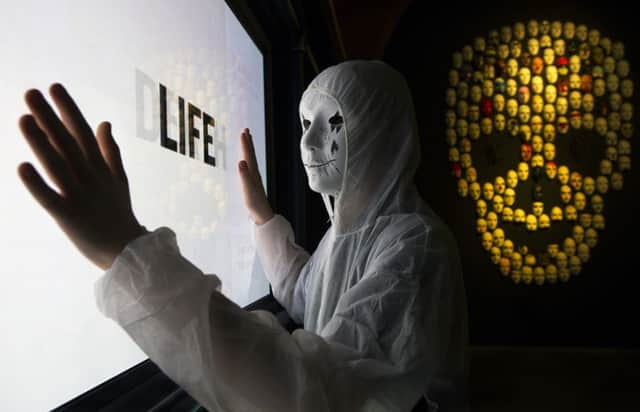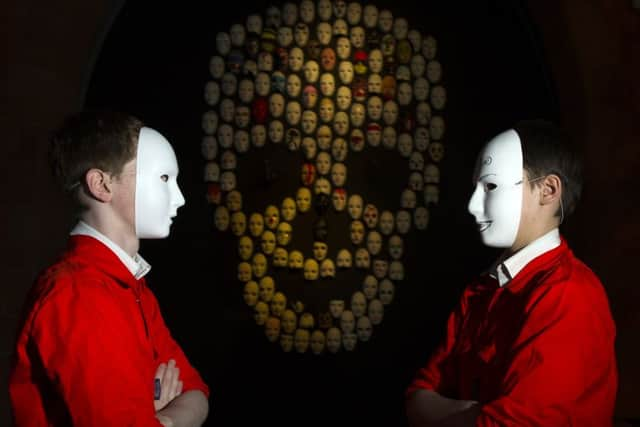Joe Wilson: What can children teach us about their world?


Museums are one of the great educators. Despite several pedagogical shifts over the 300 years since the first UK institution opened its doors – the Ashmolean in Oxford, 1683 – the direction of knowledge transfer has remained the same. In nearly all circumstances, learning is conferred from an adult to a young person.
There are occasional anomalies, though. At the end of 2014, the National Museum of Scotland hosted the exhibition Games Masters, where there was often an observable role reversal in which younger visitors assumed the role of educator to an accompanying adult. This is why Bad Entertainment, which opened this month at the National Portrait Gallery, is such a fascinating concept. A series of films and artwork created by artists as young as 12, Bad Entertainment puts young people not only in the position of communicating the museum’s content, but creating and curating it as well. The result is distinctly harrowing.
Advertisement
Hide AdAdvertisement
Hide Ad“Legitimately creepy” by its own admission, the show is also an incredibly astute and well-considered piece of work. Centred around the theme of “the actuality of everyday experience and the fantasy world of media culture,” the four films depict a nightmarish future in which masked youngsters appear to rage against the savagery and anti-socialised of their world. The young artists collectively wash their hands of accusations of narcissism by suggesting that the media is to blame.


Among the exhibition’s targets are the over-saturation and over-simplification of media via a television set that shows four channels of “scratch” videos, a relentless stream of over-stimulating and almost incomprehensible four- or five-second clips. By donning masks and referring to themselves only under the collective guise of The Untitled, the group also challenges conceptions of the current “Instagram-generation” as attention seeking and vain. There is also a resistance towards consumerist hype. A desire for honesty is best exemplified by “Stone,” one of the props from the films, which is presented like art but labelled with the brief catechism: “What is this? A Rock. Describe it? Rocky. What does it stand for? Rocks. Is this art? No, it’s a rock.”
The Untitled is a group of young people who have seized the opportunity to inform their elders as well as their peers. The results are as effective as they are visually impressive. Despite what the exhibition portrays as a dumbed-down media culture, young people today are now better informed and more in-tune than ever, and credit should go to National Galleries Scotland for providing them with a platform to prove this.
Through the horror, Bad Entertainment contains a message of hope. A message from a self-aware generation, conscious of its own flaws but resistant too to a media culture they are unfairly blamed for demanding. It is a message from a generation who also fear a future where “society has collapsed, language has collapsed. Everyone is a stranger.”
Bad Entertainment’s message is a vindication of the necessity of museums and their approach, too. Among the torrent of “scratch” videos and frustrated creations is a longing for the tranquillity, honesty and respect with which museums communicate information, and for reflection it affords. Not only is Bad Entertainment educational, but it has also provided young people with the freedom to challenge and explore their fears in one of the few places they are not manifest.
• This is an edited article from I Think Of Icarus, a museum blog run by Glasgow-based writer Joe Wilson. http://ithinkoficarus.com